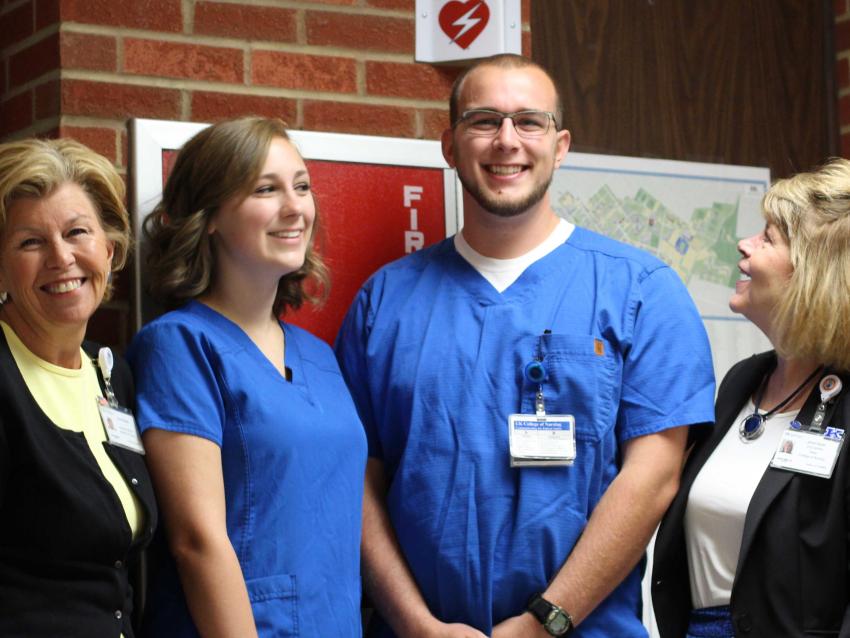
Nursing students behind installation of AED
Two undergraduate nursing students’ personal experiences with cardiac health inspired recent installation of an Automated External Defibrillator (AED) on the third floor of the Nursing Building.
UK seniors Jeffrey Key and Kaitlin Voigts submitted a proposal for the AED as a result of experiencing incidents of cardiac arrest.
Key was in sixth grade when he found his neighbor suffering a heart attack near a high school. Thanks to the high school’s AED and fast interventions, his neighbor survived.
“With the placement of the AED in a highly traveled area, care and resuscitation can be provided while waiting for the arrival of EMS,” said Key. “As a result, the outcome of the patient can be greatly improved.”
Voigts had a similar experience two years ago when a UK professor collapsed during a lecture.
“I learned that UK does not have AEDs in campus buildings, with the reason being that EMS should be able to arrive on campus within seven minutes,” said Voigts. “I wouldn’t want to bet my life, or the life of a loved one, on EMS arriving to a scene of a cardiac event in seven minutes.”
In addition to their personal experiences Key and Voigts also learned that in the U.S. 326,000 cardiac arrests occur outside of hospital settings a year – less than 11 percent of those victims survive.
Dr. Janie Heath, Dean of the College of Nursing, is incredibly impressed with their professionalism and dedication to cardiac health.
“It’s inspiring to see students who visualize a problem so personal to them and work together to achieve something that can have such a profound impact on the community as a whole,” said Dr. Heath.
Student organizations within the College of Nursing, UNAAAC, GNAAC and SNA, contributed $750 toward the purchase of the AED package, which includes a Zoll AED Plus, adult one-piece chest pads, pediatric chest pads, a standard AED cabinet, replacement AED batteries, a CPR pack with a mask and gloves, a two-sided AED wall sign and an AED check tag for inspection documentation.
Both Key and Voigts are working toward a bachelor of science in nursing.
Key wishes to pursue a career as a nurse anesthetist after working in a trauma intensive care unit. He plans on joining the 445th Medical Airlift Transport, United States Air Force Reserve stationed out of Wright Patterson Air Force Base.
Voigts hopes to be hired as a registered nurse at UKHealthCare while earning a PhD and continuing her research into the role of family history in cardiac health.
